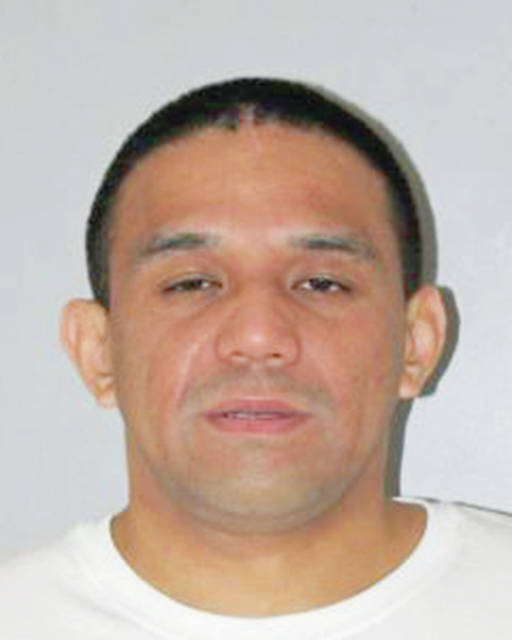LIHUE — A man sentenced last month to 10 years in jail for stealing a car the day after he got out of jail for stealing a car was ordered to pay over $20,000 in restitution to his victims.
Jovi
Enrique, a one-time Anahola resident who now resides in Kauai Community Correctional Center, was ordered to pay $16,363 to the salesman he ran over as he left the King Auto Center lot in a Honda Pilot he had just finished test driving, according to court transcripts of a hearing Thursday morning in Kauai’s Fifth Circuit Court.
Enrique will also have to pay $3,875 to the dealership for damages to the Honda, which he accidentally ran into the curb while swerving and jerking the steering wheel in an attempt to force Randy Riggan — the car salesman who had just finished taking Enrique on a test drive — off the hood of the car.
“When I looked him in the eyes, that’s when I said, ‘Oh no. This guy’s gonna try and steal this car,’” Riggan said, describing the incident in an interview Friday morning.
Enrique was released from jail in January 2018, where he was sent after pleading no contest to one count of unauthorized control of a propelled vehicle, or auto theft. The following day, he visited King Auto Center in Lihue and talked to Riggan about buying a used car.
“He seemed like a normal local guy,” Riggan said. “When he said he was trying to get a car, I didn’t realize he wanted to get one without paying.”
Riggan was feeling good. He had just finished selling a car to a different customer and was eager to ride the wave of confidence that good car salesmen know comes with closing a deal. He showed his customer a few vehicles before Enrique selected a Honda Pilot to test drive.
They took the car out and returned to the lot without incident. Then, Riggan said, while they stood in front of the car talking things over, Enrique suddenly made a dash for the driver’s side door, got in and turned the key. Enrique had to back up in order to maneuver out of the lot, and when he did, Riggan stepped in front, blocking the exit.
“I wasn’t trying to be a hero, realistically,” Riggan said.
He stood in front of the Honda, raising his arms. The two men locked eyes through the windshield for a moment. Then Enrique stepped on the gas.
Riggan said he didn’t have time to think. It was too late to get out of the way. Instinctively, he jumped on the hood of the approaching car.
“I had no place to go,” Riggan said. “So I’m just like, ‘I’m going for a ride.’”
Enrique pulled out of the lot and onto the street, swerving and jerking the vehicle in an attempt to dislodge Riggan, who still clung to the hood. Riggan said he then started speeding up, and he quickly realized Enrique was planning to slam on the brakes and throw him off. He rolled up the hood halfway, lying across the windshield.
“The thing is, I wasn’t scared,” Riggan said. “I just was calm, and I felt him speeding up.”
By this point the car was going about 30 to 35 miles an hour, in Riggan estimated. Enrique jerked the wheel hard to the left, and Riggan felt his left hand losing its grip.
The car was now a couple hundred yards away from the dealership on Haleko Road. Riggan knew they must be approaching the Rice Street intersection. He hoped Enrique would have to stop, giving him a chance to safely roll off the hood. He never got that chance.
Enrique swerved sharply to the right, hurling Riggan into the roadway. A witness standing nearby later told Riggan he saw him fly across the street. Riggan got up and ran back down the road to tell his boss somebody had stolen a car.
Later, in the emergency room, Riggan would learn about his cracked rib and discover the extent of the road rash that ran from his face to his feet. A chunk of hair was missing where the asphalt scraped his head.
Enrique didn’t get far. The police picked him up about a half hour later. Riggan was not surprised.
“I knew the gas light was on,” he said.
Enrique pleaded no contest in March to second-degree robbery, a class B felony, and in exchange prosecutors agreed to dismiss several lesser charges. He was sentenced to 10 years in jail on March 7.
Enrique’s public defense attorney, Stephanie Char, said Thursday that her client probably won’t serve his entire 10-year sentence. Within 90 days of his March 12 conviction, Enrique’s case will go before the state Parole Board which will set a minimum term he must serve before he can be considered a candidate for parole.
•••
Caleb Loehrer, staff writer, can be reached at 245-0441 or cloehrer@thegardenisland.com.


